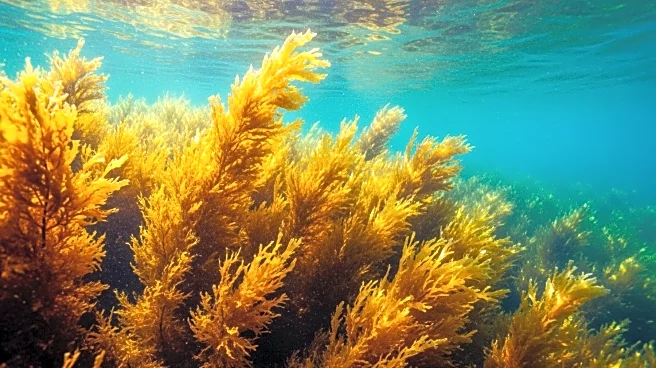What's Happening?
Hans-Josef Fell, a former German Parliament member, has proposed using macroalgae for CO2 sequestration as a means to combat climate change. The Energy Watch Group's research suggests that floating macroalgae can remove significant amounts of carbon from the atmosphere, potentially reducing global temperatures to below 1°C above pre-industrial levels. The report highlights the potential of large seaweed farms in subtropical gyres to permanently remove CO2 and create new marine habitats. This approach could replace fossil fuels and enhance global food security, contributing to a sustainable marine economy.
Why It's Important?
The proposal to use macroalgae for CO2 sequestration offers a promising solution to the challenge of reducing atmospheric carbon levels. As traditional methods of carbon removal face practical challenges, ocean farming presents a sustainable and effective alternative. The approach could benefit countries in the Global South and support large-scale carbon removal efforts. By creating new marine habitats and replacing fossil fuels, macroalgae farming could play a crucial role in climate protection.
Beyond the Headlines
The concept of ocean farming for CO2 removal raises questions about the ecological impact and feasibility of large-scale implementation. While promising, the approach requires careful consideration of potential side effects and environmental sustainability. Further research and policy development are needed to explore the long-term implications and practicalities of macroalgae farming as a climate solution.








